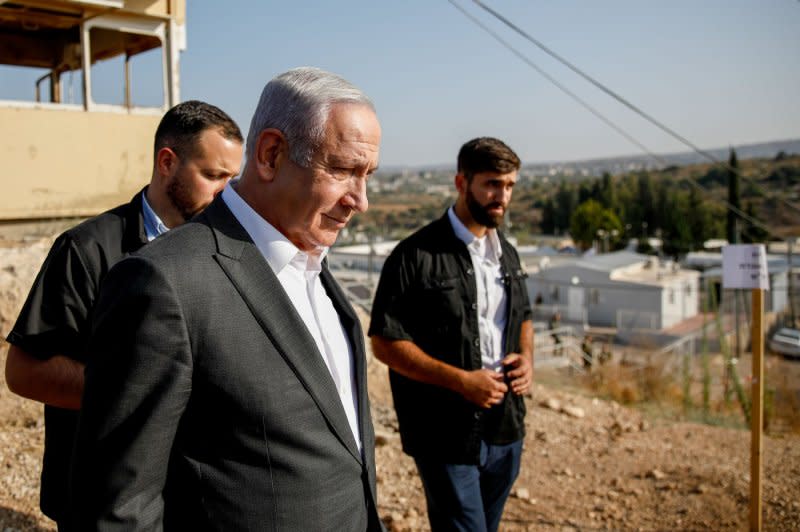Israeli Prime Minister Benjamin Netanyahu to receive pacemaker

- Oops!Something went wrong.Please try again later.
July 22 (UPI) -- Benjamin Netanyahu, the controversial far-right leader of Israel, will be fitted with a pacemaker early Sunday as tens of thousands of his people protest his government.
Netanyahu, 73, shared the news in a video message posted to Twitter.
"I want to update you on what's going to happen," Netanyahu said in the video, according to a translation by CNN.
"Last week they gave me a monitoring device. The device beeped and said I need a pacemaker, and I need to do that already tonight. I feel great, but I listen to my doctors."
Netanyahu said he expects to make it to Knesset, the country's governing unicameral parliament, after the procedure for a vote on his government's plan to overhaul the country's judiciary.

Earlier this month, physicians released Netanyahu from the Sheba Medical Center, Tel Hashomer after he was admitted there for dehydration the day before. Doctors had fitted him with a Holter monitor, a type of portable electrocardiogram for cardiac monitoring, that went off Saturday night.
Tens of thousands of protesters entered Jerusalem late Saturday after a five-day march from Tel Aviv to protest the plans to overhaul the judiciary. Critics have been protesting for 29 weeks.
The number of protesters had grown to about 20,000 by Saturday night, despite temperatures approaching 100 degrees F in the country of about 9.7 million people.
Advocates for the bill think it would let the government better implement policies supported by voters while critics view the measure as a blow to democracy that removes one of the primary checks on the power of the government.

